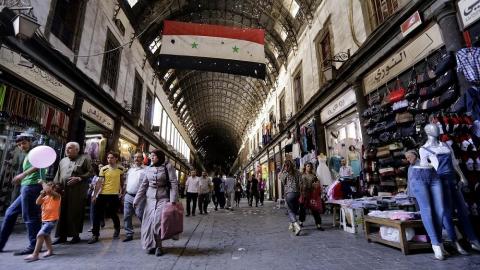
The Arab League Secretary-General Ahmad Abul-Gheit on Saturday voiced much concern over the swift deterioration of Gulf-Lebanese relations, which unfortunately came at a time when there was a bid to help Lebanon overcome its difficulties.
"The crisis, which was triggered by earlier remarks by Lebanese Information Minister George Kordahi, together with following events and stances, had to be tackled by Lebanon in a way that would defuse tensions, unlike the situation where a big setback hit Lebanon"s relations with Arab countries in general and Gulf ones in particular," Abul-Gheit said in a statement.
However, he voiced confidence that Lebanese President Michel Aoun and Prime Minister Najib Mikati are wise and strong enough to move immediately to take necessary steps to halt the deterioration of these relations, especially with Saudi Arabia.
The Arab bloc"s chief, further, urged Gulf officials to fend off more negative impacts on Lebanon"s already deteriorating economy or Lebanese citizens who are suffering from hard living conditions.
A Lebanese crisis group of ministers met on Saturday to discuss a deepening diplomatic rift with Saudi Arabia that has seen the Kingdom expel Lebanon’s envoy to the Gulf state and ban all Lebanese imports.
There have been growing calls for Kordahi’s resignation. If Kordahi resigns, ministers backed by the heavily armed Shiite Hezbollah group and its Amal ally could follow suit at a time when the government is already paralyzed by a dispute over an inquiry into the August 2020 Beirut blast.
Mikati asked Kordahi on Friday evening to consider Lebanon’s “national interest” but stopped short of asking for his resignation. Kordahi has been publicly backed by Hezbollah and has declined to apologize or resign over the comments.
The crisis risks widening to more Gulf states, with Bahrain and Kuwait also asking Lebanon’s ambassador to leave shortly after the Saudi decision.
Mikati has been hoping to improve ties with Gulf Arab states strained for years because of the influence wielded in Beirut by the Iran-backed Hezbollah. In April, Saudi Arabia banned all fruit and vegetable imports from Lebanon, blaming an increase in drug smuggling.
The ban added to the economic woes of Lebanon, already in the throes of one of the deepest financial crises in modern times.
Meanhwile, a member of Lebanese crisis group of ministers said that the Lebanon"s government cannot afford to resign over a growing diplomatic crisis with Saudi Arabia and some Gulf states.
"The country cannot be left without a government," due to other pressing matters, and would continue to work to resolve the rift, Education Minister Abbas Halabi said after the meeting. — Agencies











